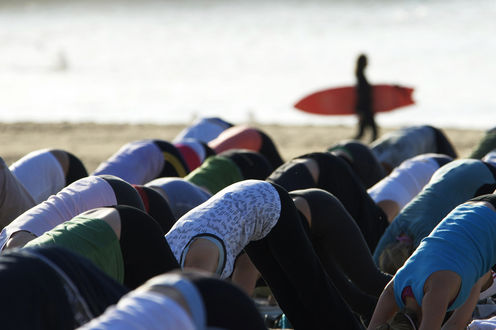
Many of the people who visit me in my therapy practice spend time talking about work. How much work there is, how they never seem to be able to get it all done, how many hours they spend at work, how tired they are all the time and how fearful they are about losing their jobs. They’ve read articles telling them how they can improve their work/life balance. They’ve delegated and relegated, meditated and ruminated.
Women in particular come in suffering the effects of overwork, losing out financially in the longer hours marathon, or perhaps more frighteningly, sacrificing their work to help manage a male partner’s crazy schedule. And yet they persist in locating the problem internally. Is there something else they can do, they wonder, to manage it all better? Maybe there’s something wrong with them; they just can’t seem to live and work at the same time.
We’re working longer hours than ever before, and as our employment conditions continue to worsen, they’re simply repackaged into a new version of normal in an effort to make the truly pathological state of many of our workplaces appear acceptable. And despite the fact that the very best evidence we have about the causes of work stress and burnout point to factors present in the workplace rather than in us, the stress reduction industry and the helping professions’ focus on individual self-care strategies is at an all-time high.
Too busy to be well
Have a look at the lifestyle section of any major newspaper and you’ll find a host of articles on how to stay well in a life that’s too busy to live in. But the facts are plainer than we’re being led to believe. Many of us simply work too much to really be well.
Nothing can alleviate the stress of overwork except working less. Like the road signs say, only sleep cures fatigue. We need to be reminded of this because tired long-haul drivers can be deluded into thinking that coffee, a can of Mother or an upbeat bit of music might help them stay awake. For the madly overworked, we need reminding that the only cure for working too much is to stop. It’s as simple as that.
In the last month or so I’ve had several clients raise the issue of overwork with their managers, with the following results. One had a consultant brought in to assess her team’s workloads against their position descriptions. Each member was found to be working at between 130 and 160% of their load. So the load was reset and anyone working at below 150% was told they weren’t pulling their weight.
Another workplace appointed an organisational psychologist to assess the team’s interpersonal relationships as a way of responding to a workload complaint. As a result, my client was told his personal commitment to reasonable working hours was putting his team at risk and he was put on a program of performance management. Another was simply told not to come in again.
Despite the endless column inches devoted to how we can find balance in our busy working lives, the solution here isn’t personal, it’s political. Those of us working in the health and wellbeing industries have had our skills hijacked by commercial interests. Employee Assistance Programs, corporate stress management training and the burgeoning multi-billion dollar wellness industry all trade on, support and are supported by the culture of overwork. If we are truly committed to wellbeing, we need to remember who our clients are meant to be and be willing to risk acting in their best interests.
No amount of multivitamins, yoga, meditation, sweaty exercise, superfoods or extreme time management, as brilliant as all these things can be, is going to save us from the effects of too much work. This is not something we can adapt to. Not something we need to adjust the rest of our lives around. It is not possible and it’s unethical to pretend otherwise. Like a low-flying plane, the insidious culture of overwork is deafening and the only way we can really feel better is if we can find a way to make it stop.
Zoë Krupka does not work for, consult to, own shares in or receive funding from any company or organisation that would benefit from this article, and has no relevant affiliations.
